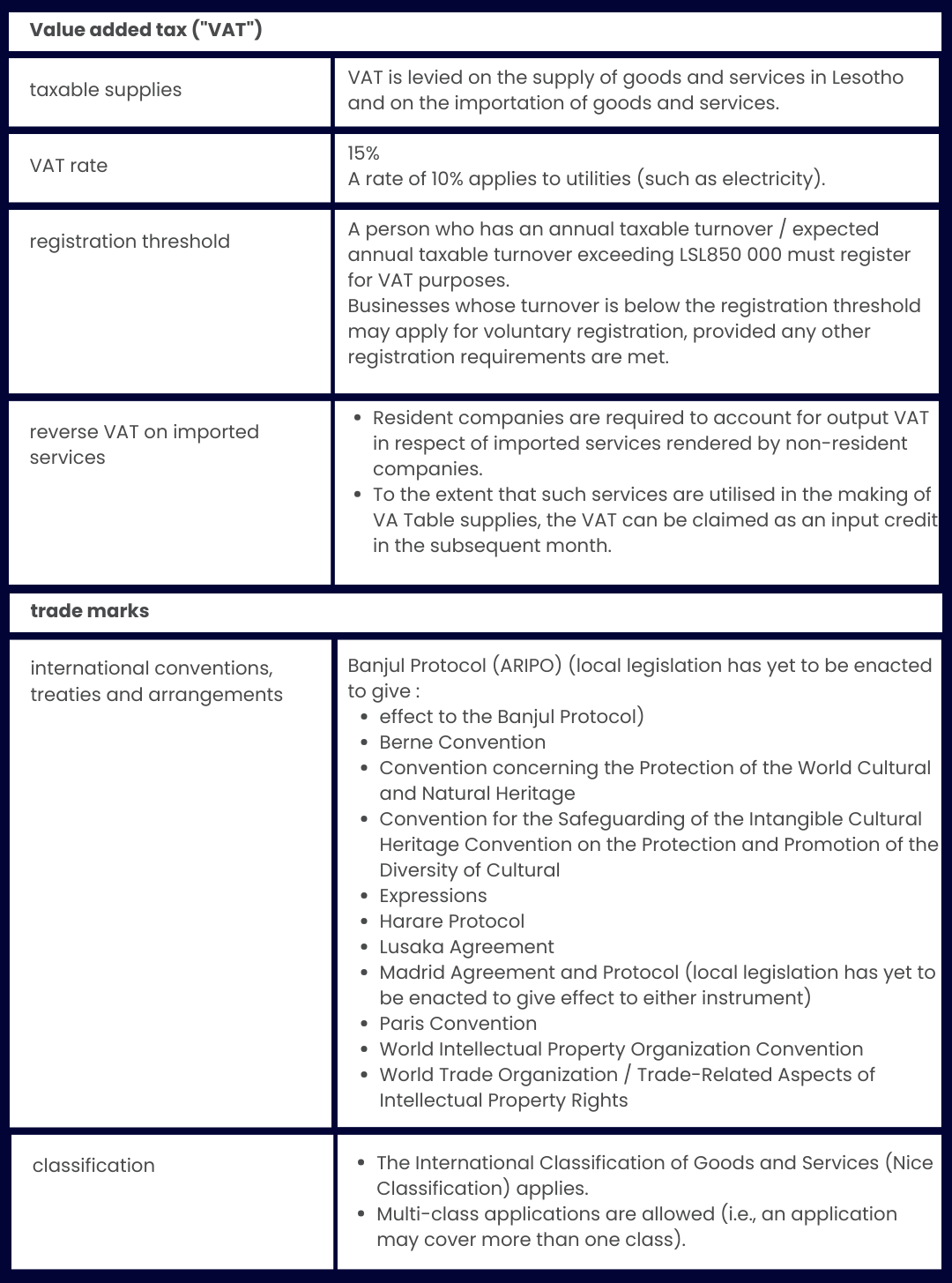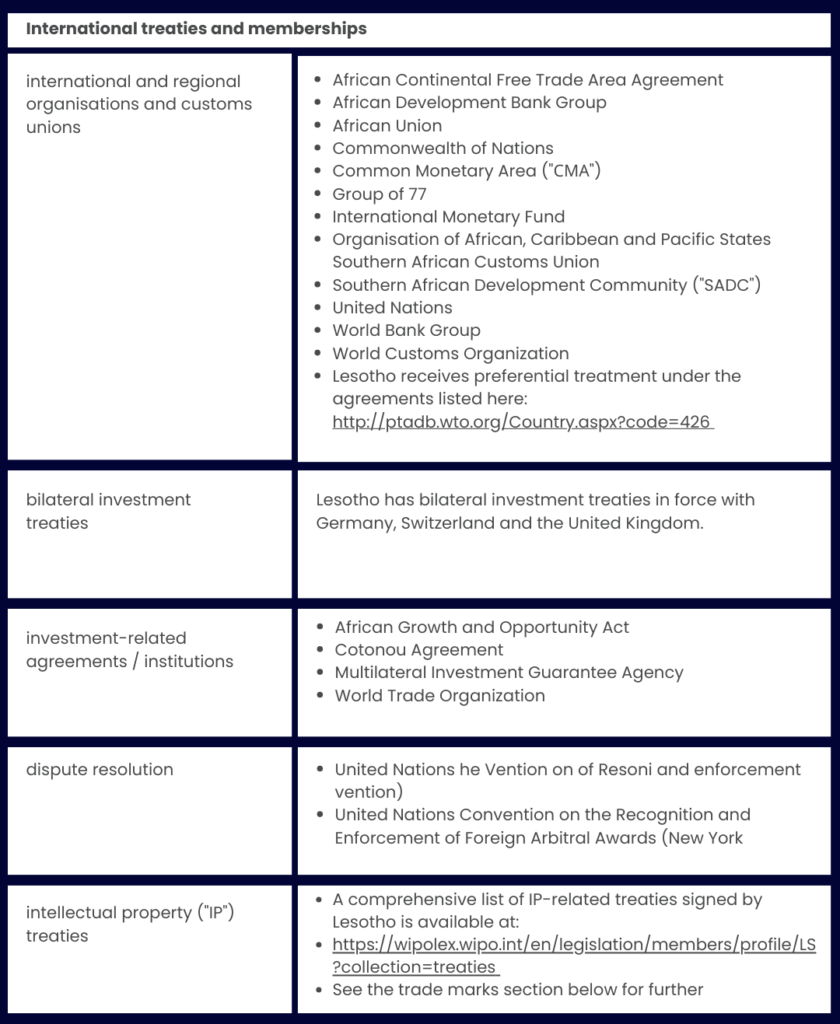Lesotho’s International Economic Framework – Tax Treaties, Exchange Controls, and Regional Integration
The Kingdom of Lesotho operates within a dynamic and increasingly integrated global economic environment, shaped by its bilateral tax treaties, exchange control regulations, and participation in several key regional and international organizations. These frameworks support Lesotho’s goals of enhancing foreign direct investment (FDI), maintaining monetary stability, and expanding its role in regional trade and diplomacy.
Double Taxation Agreements (DTAs) and Ongoing Negotiations
Lesotho has signed tax treaties with a number of countries to avoid double taxation and promote cross-border investment by reducing withholding tax obligations on dividends, interest, and royalties.
Existing Tax Treaties:
United Kingdom
South Africa
Mauritius
Treaties Under Negotiation:
Future Negotiations Approved:
Namibia
Eswatini (Swaziland)
India
China
United States
Australia
Expanding Lesotho’s double taxation treaty network helps lower the tax burden for international investors, encourages capital inflows, and strengthens the country’s appeal as a destination for international trade and investment.
Exchange Control and the Rand Common Monetary Area (CMA)
Lesotho is a member of the Rand Common Monetary Area (CMA), along with South Africa, Namibia, and Eswatini, enabling a 1:1 peg between the Loti and the South African Rand (ZAR). This arrangement promotes currency stability and harmonised monetary policy coordination.
Exchange Control Framework:
Governed by the Exchange Control Order and Regulations, enforced by the Central Bank of Lesotho in coordination with the South African Reserve Bank.
Commercial banks in Lesotho act as authorised dealers, handling foreign exchange transactions within defined regulatory limits.
Certain transactions such as overseas investments, cross-border loans, and dividend repatriations may require prior approval, ensuring compliance and economic stability.
Lesotho’s exchange control policies help manage capital flows, protect foreign reserves, and maintain confidence in the local financial system, while still enabling access to global markets.
Membership in International and Regional Organizations
Lesotho is an active member of several multilateral and regional bodies, promoting economic cooperation, trade liberalisation, and development partnerships. These include:
Southern African Development Community (SADC)
Southern African Customs Union (SACU)
Preferential Trade Area (PTA)
British Commonwealth
United Nations (UN)
Through these memberships, Lesotho gains access to preferential trade agreements, technical assistance, and regional funding initiatives, reinforcing its position in Southern Africa’s economic and diplomatic landscape.
At Mayet & Associates, we assist businesses and investors in navigating Lesotho’s tax and exchange control landscape, ensuring full compliance while maximising international trade and investment opportunities.


